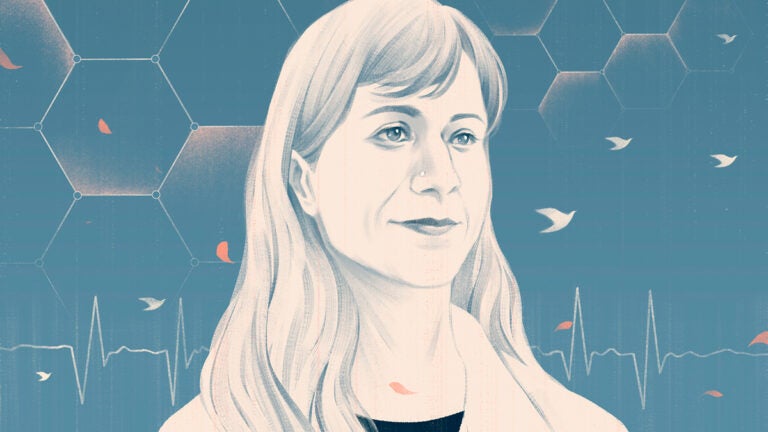
(Illustration/Jasu Hu)
What Makes a Good Life—and Death? Sunita Puri Explores It Through Writing
A palliative care physician explores the role of medicine in helping us live and die well.
Sometimes you need take a break from your day and laugh. Sunita Puri knows this firsthand.
There are times when Puri will close the door of her office and listen to comedians like Stephen Colbert or Russell Peters. It re-energizes Puri, the medical director of palliative medicine and supportive care service at Keck Hospital of USC and the USC Norris Comprehensive Cancer Center. She attends to the physical, emotional and spiritual needs of patients facing serious diseases, so she needs ways to process what she sees.
In part, Puri does that through writing, and her observations have gained her national attention. After being published in the New York Times, The Atlantic and other media, she put out the book That Good Night, a collection of personal stories about her upbringing and her career in medicine.
“I’ve written stories and essays all my life as a way to make sense of what I was seeing in medicine and in the world at large,” she explains. In her stories, she weaves together memories of her patients, as well as what her mother, a doctor, and her father, an engineer, taught her about the impermanence of life. She also writes about her decision to work in palliative care, a relatively new subspecialty of medicine that focuses on quality of life for people struggling with illness.
Sunita Puri’s Mission: Listening
One of the toughest parts of Puri’s job is helping families understand that their loved ones won’t recover from disease or a debilitating accident. And, further, halting treatment doesn’t mean a hospital is abandoning its patient.
Puri recalls one patient, Alice, a woman in her 30s dying of lymphoma, who taught her about compassion and letting go.
Alice needed a respirator tube to breathe, and could only communicate by writing on a clipboard, Puri remembers. “I had to help her family understand Alice was dying, even though she was wide awake and communicating with us. Her family was struggling with the idea that she would never leave the hospital, but Alice understood she was approaching the end of her life. ‘I am ready to fly!’ she wrote, anticipating her death. We helped her parents understand Alice’s situation, and I was really moved by her words, and being part of that experience.”
Puri pauses before she adds, “Every patient I’ve had has taught me something.”
Living with Suffering
The physician grew interested in palliative care during her second year of residency, when she began questioning why patients with chronic diseases were given treatments that didn’t necessarily ease their suffering. Was there a way to balance preserving life at all costs with accepting that life is finite?
She still has no easy answers, but Puri searches for them with a life-affirming outlook. She hopes her book will help the public and the medical community better understand the value of palliative care and the professionals who work in that field.
“Our occupation has a high rate of burnout and turnover because we have to deal with a general cultural avoidance of death and a medical culture that’s had difficulty accepting what we do. We also encounter a tremendous amount of human suffering,” she says. “Yet there’s beauty in the challenges of our work.”



